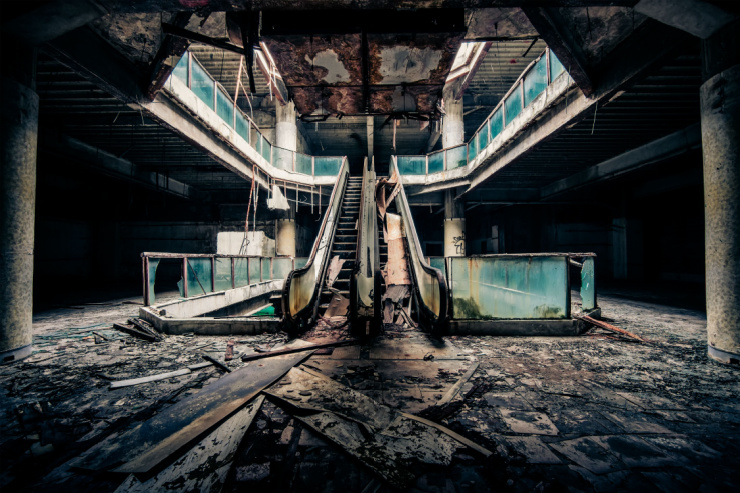Prices for mall real estate peaked in 2016, and since then, some low-end malls have watched their values drop “at least 50% and in some cases more than 70%,” according to Kate King, reporting in The Wall Street Journal. She writes:
WATERFORD, Conn.—Crystal Mall’s parking lots used to be so crowded that parents would line up to drop off their teenagers near one of the entrances rather than search for a spot.
Now, the vast stretches of cracked pavement surrounding this 1980s-era regional mall on Connecticut’s coast have more weeds than cars. Valued by an appraiser at $153 million as recently as 2012, Crystal Mall sold in June for just over $9.5 million in a foreclosure auction.
“To look at it now, it’s disheartening,” said Waterford’s top elected leader, First Selectman Rob Brule, who grew up in this working-class town and described the mall as the social centerpiece of his youth.
Crystal Mall’s cut-rate sales price shows how rapidly the value of America’s regional malls has deteriorated in recent years due to changing shopping habits, competition from other retail and the rise of online shopping.
Older, low-end malls are worth at least 50% and in some cases more than 70% less than they were when mall valuations peaked in late 2016, said Vince Tibone, head of U.S. retail and industrial research for real-estate research firm Green Street.
Now, as more than $14 billion of loans backed by these properties comes due in the next 12 months, according to Moody’s Analytics, struggling malls are defaulting on their debt. With mortgage rates up sharply, refinancing that debt will be more challenging and expensive.
About a fifth of all malls financed through commercial mortgage-backed securities are underwater, meaning the properties are worth less than the loans they back, said Kevin Fagan, head of commercial real-estate economic analysis for Moody’s.
In some cases, they are worth a lot less. Crystal Mall’s former owner, Simon Property Group, stopped making payments on $81 million in outstanding CMBS debt during the pandemic and last year handed back the keys to the property it had owned since 1999.
Read more here.

